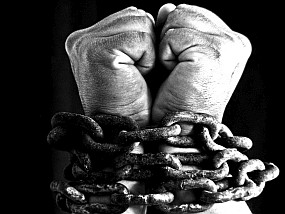12 Years a Slave won Best Picture at the 2014 Academy Awards.
I did not see the film. In fact, in a stunning case of cultural cluelessness, I’d not even heard of it before it won.
That said, I’m not surprised at its win. In fact, it may not have been possible for any other film to take home Oscar.
I wish I could find the link to the article, but several months ago I read an enlightening post concerning Hollywood’s rather banal decent into repetitive storylines. Slate had an insightful look at the Save the Cat phenomenon and how it has rendered all plots the same (“Save the Movie!“), but this gone-missing article struck a bigger nerve.
The contention is that movies today lack a touchstone for the American script—not a movie script, but the ongoing dialog we Americans maintain that defines our core beliefs as Americans.
Core beliefs? Can you even HAVE core beliefs today?
The article contended we were at a point in our history as a nation that we can no longer agree on shared values and core beliefs beyond some very general ones, milquetoast values that make for boring movies. We saw Man of Steel at the box office this summer, but what we didn’t see was much truth, justice, and the American Way on display. Wouldn’t want someone watching to get riled that a pro-America Superman places the Man of Steel into the imperialistic oppressor category.
Let’s be frank here: About the only shared value we Americans have left is a distaste for oppression. While in an earlier age that might have meant us fighting some tyrannical, overseas dictator or championing the cause of the poor, today it means something less noble: Don’t oppress me by questioning whatever it is I want to do to gratify myself.
 By choosing a film about slavery as Best Picture, the Academy recasts the worst of oppressions and shoehorns it into the modern expression. I mean, what kind of barbarian could possibly endorse the oppression of a fellow human being as expressed in Civil War-era American slavery? Now fast-forward that to America 2014 and witness how easily we slide from championing freedom from slavery to demanding freedom from all moral constraints.
By choosing a film about slavery as Best Picture, the Academy recasts the worst of oppressions and shoehorns it into the modern expression. I mean, what kind of barbarian could possibly endorse the oppression of a fellow human being as expressed in Civil War-era American slavery? Now fast-forward that to America 2014 and witness how easily we slide from championing freedom from slavery to demanding freedom from all moral constraints.
Who is the new oppressor? The one who questions same-sex marriage. The one who questions abortion. The one who questions…
See, to be an oppressor today, to be the villain in a modern movie plotline, all one must do is question another person’s desire (now called “a right”) to do ____________.
The questions the supposed oppressor is asking may be worthwhile on the surface, but their worth is now trumped by any implications of inherent oppression. Carte blanche has never been more acceptable, at least when the self-satisfiers are in charge.
Movies are boring today because we have seen our American script became a one-note message. Worse, even that one-note message of opposing oppression lacks the depth and wisdom it once possessed. Today, it is all about self-gratification. Any constraint that prevents self-gratification has been deemed oppression. And we all know who the new oppressors are—at least as they’ve been tagged by the ones making up the new definitions.
So, if you’re reading this and nodding your head, how does it feel to be the new oppressor?
“Alright, Mr. DeMille, I’m ready for my close-up.”

Dan: “Today, it is all about self-gratification. Any constraint that prevents self-gratification has been deemed oppression. And we all know who the new oppressors are…”
Die Christen sind unser Unglueck.
Dan- I don’t think it was an article. It was a podcast from Phil Vischer. I remember watching it after you’d linked to it. You may be thinking of something else I’m unaware of, though.
Clint,
It was indeed an article. It came out around the time of the initial release of Frozen.